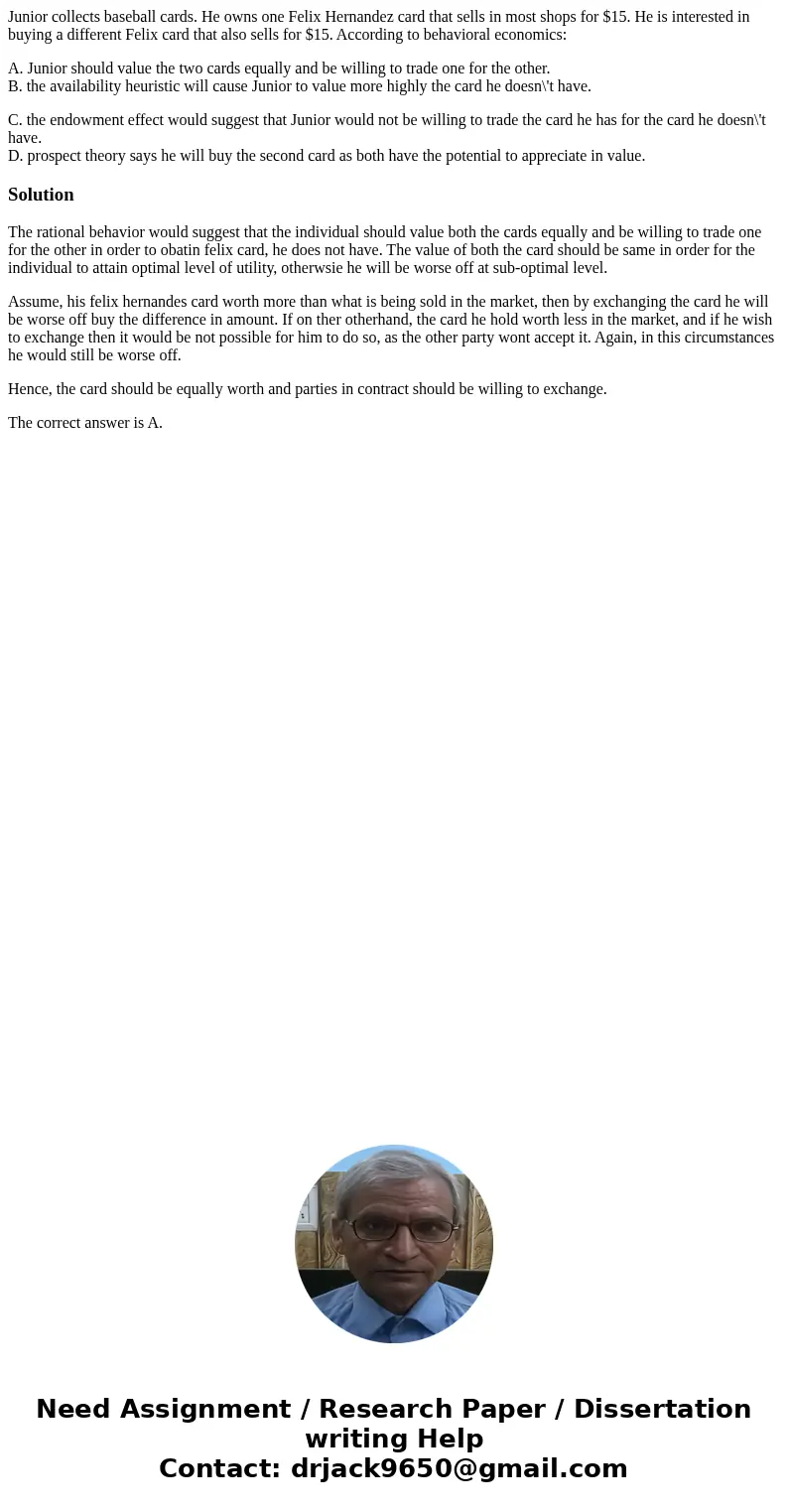Junior collects baseball cards He owns one Felix Hernandez c
Junior collects baseball cards. He owns one Felix Hernandez card that sells in most shops for $15. He is interested in buying a different Felix card that also sells for $15. According to behavioral economics:
A. Junior should value the two cards equally and be willing to trade one for the other.
B. the availability heuristic will cause Junior to value more highly the card he doesn\'t have.
C. the endowment effect would suggest that Junior would not be willing to trade the card he has for the card he doesn\'t have.
D. prospect theory says he will buy the second card as both have the potential to appreciate in value.
Solution
The rational behavior would suggest that the individual should value both the cards equally and be willing to trade one for the other in order to obatin felix card, he does not have. The value of both the card should be same in order for the individual to attain optimal level of utility, otherwsie he will be worse off at sub-optimal level.
Assume, his felix hernandes card worth more than what is being sold in the market, then by exchanging the card he will be worse off buy the difference in amount. If on ther otherhand, the card he hold worth less in the market, and if he wish to exchange then it would be not possible for him to do so, as the other party wont accept it. Again, in this circumstances he would still be worse off.
Hence, the card should be equally worth and parties in contract should be willing to exchange.
The correct answer is A.

 Homework Sourse
Homework Sourse